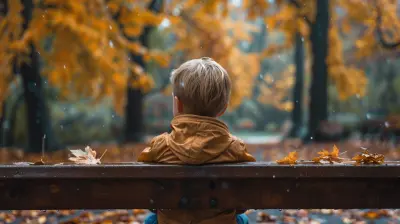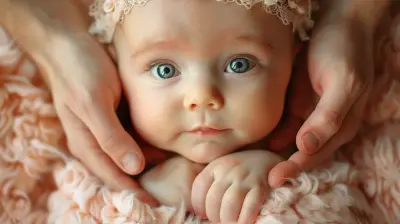The Role of Puzzles and Games in Cognitive Development
30 September 2025
Let’s be honest—if you’ve ever tried to get a toddler to sit still for more than five minutes, you know it takes a miracle (or maybe a really fun game). But what if I told you that those colorful puzzles and quirky board games aren’t just distractions—they’re brain gym for the little ones? Yup, puzzles and games are the unsung heroes of cognitive development. And no, this isn’t just about making your kid the next Einstein. It’s about nurturing those tiny brains to grow, explore, and imagine—one game at a time.
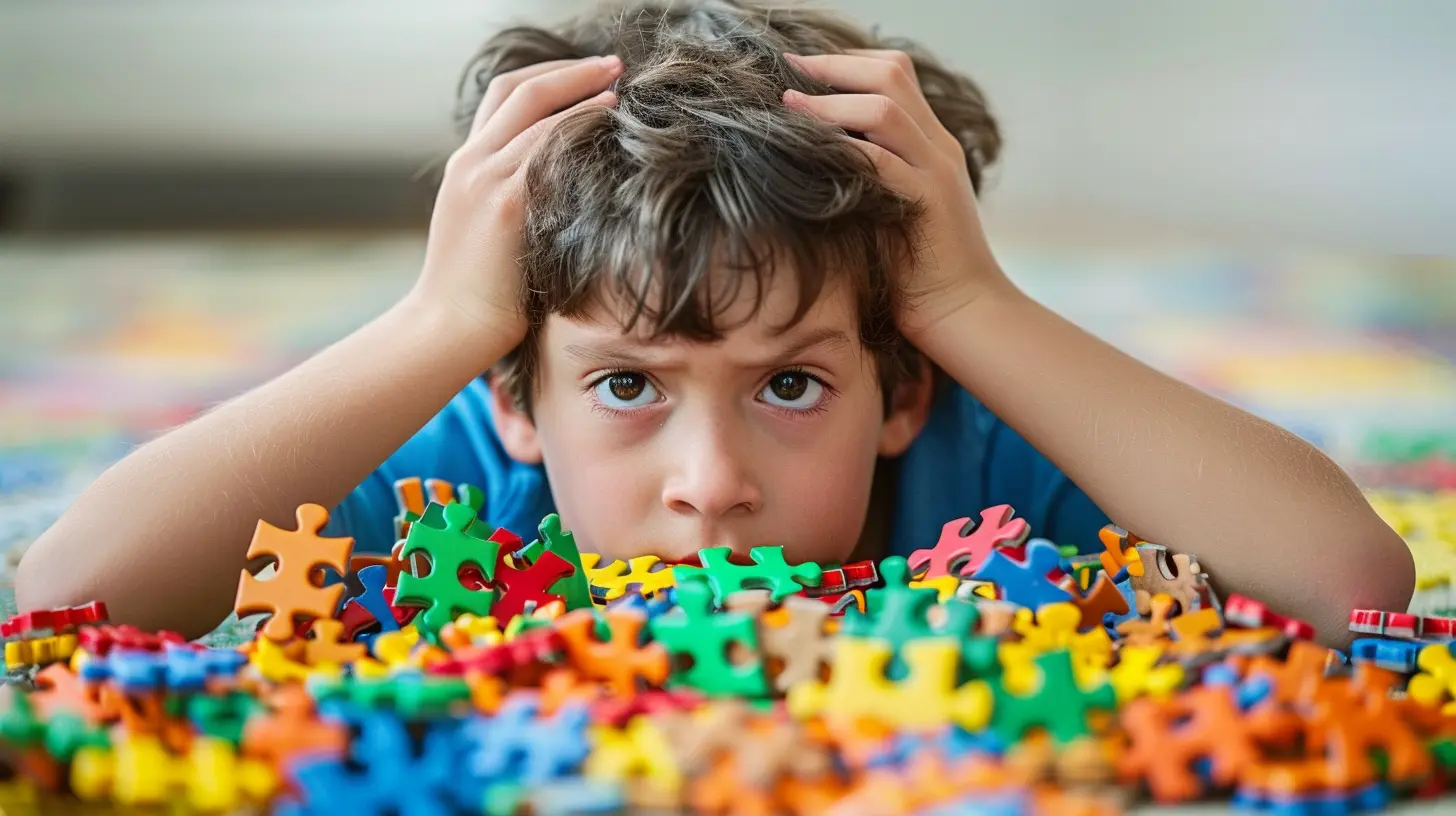
Why Puzzles and Games Matter (A Lot More Than You Think)
We often hand our kids a puzzle or let them play a memory game just to keep them occupied. But behind the scenes, their brains are going into overdrive. Cognitive development isn't a bunch of fancy theories—it's basically how kids learn to think, reason, remember, and problem-solve. And puzzles and games? They are like spinach for the brain (minus the weird taste).The Brain Workout Every Kid Needs
Imagine your child’s brain is like a muscle. The more it’s used, the stronger it gets. Puzzles and games give it that mental workout without the need for flashcards or boring drills. From shape sorters to jigsaw puzzles and memory card games to strategy-based board games, each one targets a different part of the brain.Think of it like CrossFit for cognition. But instead of a kettlebell, your child’s lifting colorful puzzle pieces and matching cartoon animals.
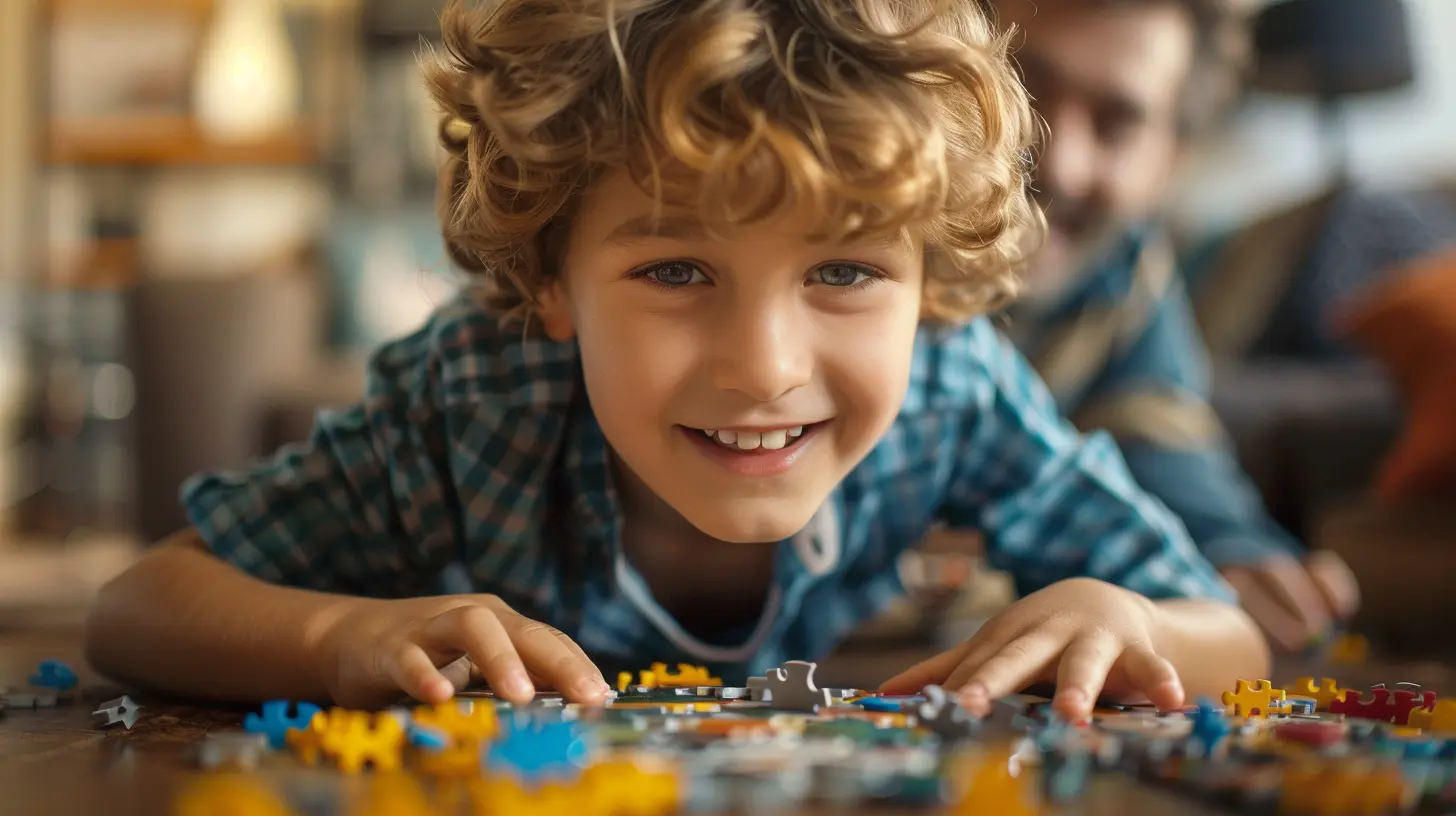
Let's Dig Into the Cognitive Skills They Boost
There’s a whole rainbow of cognitive skills, but here are the main ones puzzles and games help develop:1. Problem-Solving Skills
Every time your child fits the right puzzle piece or figures out how to win a game of Connect Four, their brain does a little happy dance. They’re solving problems, thinking critically, and learning from trial and error. It’s basically their version of Sherlock Holmes—minus the creepy hat.2. Memory and Recall
Matching games are memory ninjas. They train kids to remember where pieces are, what patterns they’ve seen, and how the game works. This helps strengthen both short-term and long-term memory. Don’t be surprised if your 4-year-old starts remembering things you wish they’d forget (like the time you said potty words in traffic).3. Spatial Awareness
Fitting puzzle pieces together isn’t just about shapes—it’s about understanding how things move and relate in space. This skill is crucial later in life for everything from packing a suitcase to solving a geometry problem. So, yeah, your kid rearranging fridge magnets like a pro? Future architect alert.4. Attention Span & Focus
In a world where kids (and let’s be honest, adults too) are constantly glued to screens, the ability to sit down and focus on one task is gold. Puzzles require patience, concentration, and staying with a task until it’s done. That’s character building disguised as fun.5. Planning and Strategy
Ever watched a kid plan their next move in a board game? That’s strategy in action. They’re learning to predict outcomes, consider consequences, and make decisions. Essentially, your six-year-old plotting their next Uno win is low-key developing future CEO skills.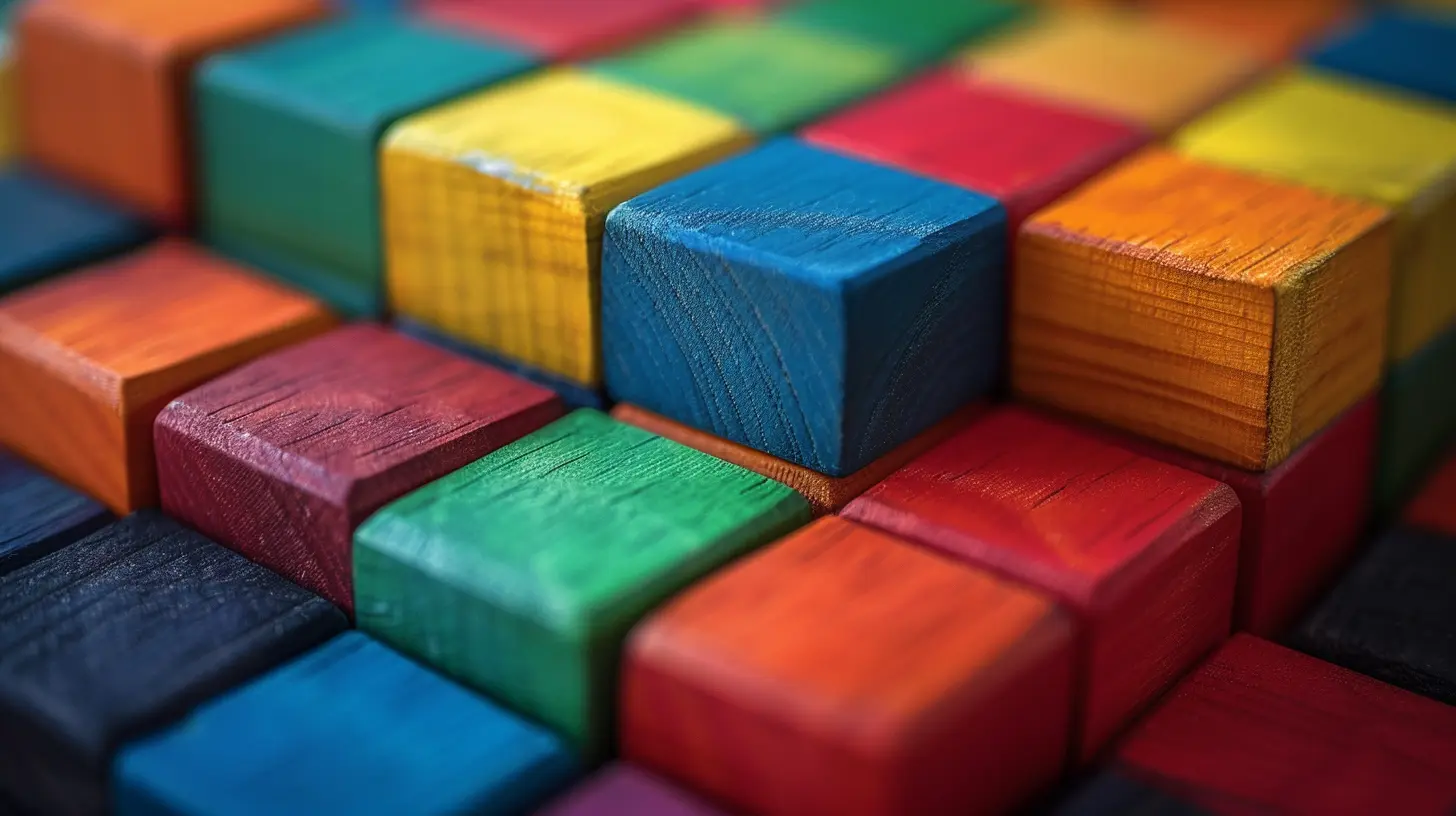
The Social Side of Games
Wait—there's more! Beyond sharpening those mental gears, games also offer a gold mine of social-emotional learning. Think of group play as a sandbox for life. It teaches lessons no lecture ever could.Turn-Taking and Patience
Ever tried explaining the concept of “waiting your turn” to a toddler? Enter cooperative games. In the thick of play, kids naturally learn to wait, share, and encourage. It’s like social jujitsu—they pick up manners and empathy without even realizing it.Winning and Losing Gracefully
No one loves a sore loser (or a cocky winner). Games give kids a safe space to experience both. Whether they’re throwing a tantrum or doing a victory dance, they’re learning how to handle emotions. And yes, that includes you coaching them through losing at Candy Land without launching the gumdrop mountain across the room.Communication Skills
Group games require talking, listening, and sometimes negotiating like little diplomats. Whether it’s explaining rules or defending a move, kids are sharpening their communication skills while having a blast. It’s like speech class without the awkward presentations.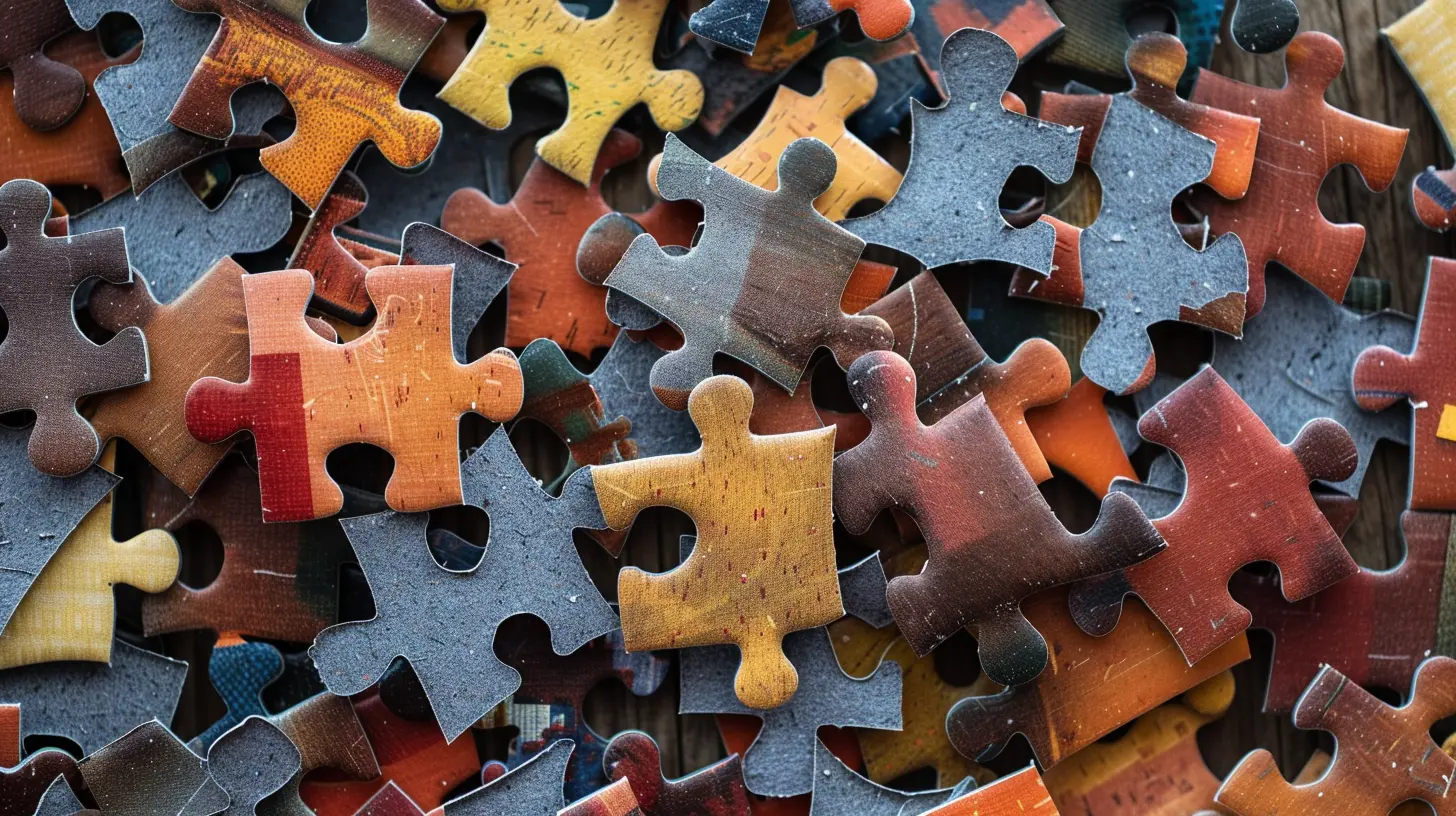
Age-Appropriate Games: What Works When?
Not all puzzles and games are created equal. Picking the right one for your child’s age (and patience level!) makes a big difference. Here’s a quick cheat sheet:Infants and Toddlers (0–3 years)
- Chunky shape sorters- Nesting cups
- Simple knob puzzles
- Peek-a-boo games
These help with hand-eye coordination, cause-and-effect understanding, and basic problem-solving. Bonus: most of them are drool-proof.
Preschoolers (3–5 years)
- 6 to 24-piece jigsaw puzzles- Memory match games
- Simple board games like Candy Land
- Building blocks
At this age, they begin to understand rules, follow sequences, and make decisions. Also, snack breaks mid-game are totally acceptable.
Early School Age (6–8 years)
- More complex jigsaw puzzles (50+ pieces)- Uno, Connect Four, Guess Who?
- Pattern-based puzzles
- Tangrams
Kids at this stage enjoy a challenge and can start thinking ahead. Strategy begins to bloom like a sunflower on caffeine.
Tweens and Beyond (9+ years)
- Chess, Checkers, and other strategy games- Sudoku and logic puzzles
- Escape room-style games
- Competitive card games
Older kids can grasp complex rules and enjoy multi-step problem-solving. Some might even school you in chess (and rub it in your face just a little).
Don’t Fear the Digital Games (Use Them Wisely)
Let’s address the elephant in the room—the screen. Digital games often get a bad rap, but they’re not all brain-melting zombies. Interactive puzzle apps, logic-building games, and digital versions of classics like Scrabble can actually support cognitive growth—when used in moderation.Think of screens like chocolate cake. A little can be delightful. A whole cake? Not so much.
Screen-Time Tips:
- Choose age-appropriate, ad-free apps- Play together for bonding (and monitoring)
- Set limits and balance with offline play
The Role of Parents (AKA Puzzle Partners)
Your role? It’s not just to hand over the toy box and hope for the best. Be an active participant! Sit on the floor, build that LEGO tower, cheer on their game wins, and gently guide them when they’re stuck.Kids love learning from you. And let's face it, you might just find yourself enjoying a good ol' game of Memory (and being embarrassingly bad at it).
Make It a Family Thing
Game nights aren’t just for laughs—they’re brain fuel in disguise. Set up a weekly family game session. Vote on the games, try new ones, let the kids choose sometimes. This turns learning into bonding and creates memories that outlast even the most epic Monopoly standoffs.How to Encourage Cognitive Play Daily
No need to revamp your whole life. Just sprinkle puzzle and game fun into your routine:- Keep a puzzle on the coffee table
- Play "I Spy" during car rides
- Use board games as wind-down activities before bed
- Turn chores into timed challenges (hello, brain + clean floor combo!)
It’s less about timing and more about consistency. A few minutes here and there add up to some serious brain gains.
The Long-Term Payoff of Play
Here’s the kicker. All this fun adds up—big time. Kids who regularly engage in puzzle and game play often show improved academic performance, better emotional regulation, and stronger social skills. It’s like giving them a head start in life without the pressure of extra homework.Games and puzzles aren’t just childhood fluff. They’re the bricks in the foundation of thinking. And just like our favorite old-school toys, the benefits never go out of style.
Final Thoughts: Play Hard, Learn Easy
When we think about raising thoughtful, sharp, adaptable kids, we don’t always imagine them rolling dice or fitting puzzle pieces. But maybe we should. Because in those silly, messy, giggle-filled moments of play, something magical happens—brains grow. Connections spark. Kids thrive.So go ahead. Break out that dusty board game. Challenge your kid to a speed-puzzle race. Laugh when you lose. High five when they nail it. And remember, you're not just playing—you’re investing in your child’s future, one puzzle piece at a time.
all images in this post were generated using AI tools
Category:
Education TipsAuthor:

Liam Huffman
Discussion
rate this article
1 comments
Alice Monroe
Embrace puzzles and games! They nurture creativity and critical thinking, shaping bright futures for your children!
October 16, 2025 at 4:59 AM

Liam Huffman
Thank you for your insightful comment! Indeed, puzzles and games are invaluable tools for fostering creativity and critical thinking in children.

